- Home
- Lise McClendon
Blackbird Fly Page 14
Blackbird Fly Read online
Page 14
“All right. I’ll look for myself.” Tristan hopped up on the toilet and draped his long arms over the wall. Outside Luc was calling to his father. Fernand and the water department man came to the door.
An odd, musty smell wafted up. Moving the spot of light from one end of the space to the other, Tristan felt a charge of excitement. The space wasn’t bare, nor was it just full of dirt, rocks, and mortar dust as he guessed. No money. But there were bones. A lot of bones. He looked up at Luc and his father in the doorway.
“Holy shit.” He steadied the yellow beam of the flashlight on the empty eye sockets of a human skull. “We’re not in Kansas anymore.”
The owners of the local winery were a middle-aged woman and her brother. Tanned, well-muscled, in a flowered dress washed to the point of limpness, Odile Langois had been pretty once but years of labor in the sun had lined her face and bent her back. She was fierce-looking, serious, but gave Merle a courteous shake of the hand. Albert asked for a tasting demonstration for his American friend. “She has only ten minutes,” Albert told Merle. “But one glass?”
“Formidable. Merci.”
Odile winced at Merle’s French then demonstrated how to swirl the wine, to taste, to swish on the tongue, to hold it there. All this had to be told to Albert and translated, but Odile was fast. In ten minutes on the dot, they had swirled, swished, and spit. Albert ordered two jugs of wine, Merle one, and Odile left to find her brother to help them load.
“What was I supposed to be tasting?”
“The delicate flavors of the wine,” Albert said, pinching his fingers as if plucking flavors from the air. “Oak, lavender, mint, lemon, blackberry. Did you taste any of them?”
“Is burnt leather a flavor?”
He chuckled. “Highly prized.”
“I’ve never been to a wine tasting. It would be fun to help people educate their tongues.”
Albert cocked his head. “You could do it?”
“If I knew anything about wine. Which I don’t.”
“Odile told me she was looking for someone to give English tours but she can’t afford one. There is a school for tour guides. It is tres cher to get graduates as not many pass.” He looked at her, smiling in his toothy way.
“What?”
“I could put in a word with Odile.”
“For what? A tour guide? I’m not a graduate of tour-guide school.”
He wiggled his eyebrows. “The French enjoy bending the rules. I will ask her.”
“But I’m only here a week or so — ”
He slipped out the open door as she began to protest. She didn’t know anything about the making of wine. And then there were her personal issues, as in being under village arrest, renovating a dilapidated house, fleeing the country as soon as possible.
The tall silent brother they had seen earlier in the fields picked up three jugs of wine from the storeroom next to the tasting room. He wore khaki field clothes and a straw hat. The backs of his hands were red and leathery. Merle followed him out to the car where he set the jugs on the back seat. He strode off to the stucco building, one of two large warehouse wings. It seemed newer, with a nice clean roof. That reminded her, was the new roofer at the house? One could wish.
The house was a perfect distraction. Thinking about paint, flowers, even a laundry room, kept her mind occupied. It filled her with tasks, duties, and she was a dutiful person if anything. At night reality came crashing back on her and menace floated in her dreams. She didn’t dream about Harry much. He seemed to have slipped away from her, and that made her sad. She should have fought for him. Or at least cared. Then there was guilt of getting the house from a murdered woman. All day though, things were good, domestic and containable, under control. With Tristan here there was no one to worry about. The harder she worked during the day, the easier she slept without dreams of Harry or Justine or home.
Albert was waving at her from the line of cypress. Odile stood on the porch of the house with him, chatting in the shade.
“You can lead a tour on Monday?” Albert asked Merle. “She just had a telephone call from the Maison du Vin.”
Merle smiled at Odile while she whispered to Albert: “What have you gotten me into? ”
“It will be fine. Just once. You’ll see.” Albert turned to Odile and spoke in soothing tones about who-knows-what. They kissed again as they left. Albert took Merle’s arm as they stepped onto the gravel parking lot. “You have a date in two days to come back and tour the place with Gerard, the brother.”
“Does he speak English?”
Albert opened the car door for her. “Not to worry, we will think of something.”
Merle stood on the back step overlooking the garden now ruined by mud, boot prints, cigarette butts, and trenches. A crowd stood huddled around the outhouse: the plumber and the water department man, Fernand’s son, the gendarme, and the inspector. And Tristan by the pile of rocks, waving his hands.
“Mom! You won’t believe it!” He ran over to her, dragged her by the hand.
Albert trotted behind her. He had come in to talk to Tristan about the fencing tournament. Fernand spoke rapidly to the old priest. Albert turned to her. “There is a discovery, Merle. They called Jean-Pierre.”
Tristan was excited. “You won’t believe it. We’ve got a skeleton in the pissoir.”
"What?" Merle elbowed her way into the outhouse and demanded the flashlight.
“Step up on the toilet, ” Tristan called from outside. The gendarme spoke rapidly, in a commanding tone. Too bad she didn’t understand a word.
It took a minute for her eyes to adjust. Then, there it was. A human skull, with tufts of hair still attached. The hands, tiny bones collapsed in piles. The ribcage, half-intact. Leg bones, crushed by a rock. She stepped down, bowing her head over the flashlight as she tried to slow her heartbeat.
The inspector’s face was implacable as always. He held a stub of brown cigarette in his stained fingers. His eyes, a curious brownish green, watched her. She stepped outside and asked, “What will you do?”
Another investigation file would be opened, but since the inspector was already here his superiors had ordered him to also take this case. He had called for a forensics team to shoot photographs and take the bones to a laboratory for analysis. The gendarme, shunted to one side yet again, left the garden through the back gate. The inspector took Merle to the table, with Albert to translate, and asked her about the house and its history. She told him that the last legal occupants had been her late husband’s parents some fifty years before.
The house stood empty for fifty years? Except for the occasional long-term squatter, she said, giving her best Gallic shrug. Madame LaBelle, Albert explained. The inspector asked to look around. He walked away. Albert sat down in the chair he vacated, without his usual smile.
“If I believed in curses I would say this house has one,” he said dejectedly.
“Maybe we could use an exorcism,” Merle said, trying to cheer him. The skeleton was shocking, yes, but not more so than the recent death of Justine.
Albert sighed. “Too late, I think. When did your husband’s parents live here?”
“Nineteen forty-eight to fifty-two, from what I can figure. They were given this house by an aunt, then moved back to the United States when Harry was two. They died in a car accident when he was four.”
“Did anyone else live with them?”
“We know very little of their life here. Just the obituary, and those letters.” Merle remembered the other things in the safe deposit box. “Wait here.”
She returned with the envelope and spread the items out on the tablecloth. “Here is a photograph of them. Not here though, I don’t think. See the brick wall?” The old priest picked up the black-and-white photograph and squinted at it, pushing his glasses onto his forehead.
“And look at these.” She unclipped the fragile paper labels and spread them in front of the old man. “Do you know these wineries?”
“All famous v
intages. Rare too, right after the war. Château Pétrus is very fine, I hear. I myself have never tasted.”
“This menu — it looks English. Shepherd’s pie, spotted dick.” She looked at the front where the tiny bird was imprinted in red on the gray boards. Round Robin Inn, it said faintly. She’d never been able to make it out before, but here in the afternoon sun, it was just readable.
The inspector stepped out the back door. He rounded the outhouse several times, examining the rock work, the mortar, the roof. He went inside again. Tristan said, “What’s he looking for, a murder weapon? Pick a rock, Capitan, any rock.”
“I have a feeling my laundry room is doomed,” Merle said.
“Just when I was starting to love the chain gang,” Tristan said, smirking. The skeleton had if anything made him cheerier. “Hey, did I tell you the roofer was here? He went up on the roof with Albert’s ladder.” He turned to priest. “He’s your friend, right?”
“His father was in my parish once, many years ago.”
The inspector appeared outside the outhouse and punched a number on his cell phone. A few minutes later Jean-Pierre returned, with a roll of crime-scene tape. The bright orange tape had ‘Entré Interdit’ on it: Entrance Forbidden. Together they strung it around the outhouse several times and tied the ends together. The inspector gave Merle and Tristan instructions on not touching the pissoir. The forensics team would be here in the morning.
After midnight Merle lay on her rollaway in the parlor, staring at the spider webs she’d missed on the ceiling. The evening was warm, promising a hot day tomorrow. Tristan had tossed and turned for fifteen minutes but now lay at the other end of the room, snoring. He had a snore very like his father’s.
Albert had invited them to dinner. It seemed better to stick together after the day's events. They discussed the skeleton in the pissoir so long that there had been nothing more to say. The old man speculated it was the Dominique of the letters. Now, in bed, Merle had a sour taste in her mouth that had nothing to do with the wine from Château Gagillac at dinner. It was Weston Strachie, and his French bride, Marie-Emilie. What were they like? Were they kind and friendly? Were they mean and unhappy? Why had they left? Had they killed someone here? She shivered and pulled up the sheet. She struggled to picture the house with them in it, with Harry as a baby, squalling, toddling, laughing.
Time erased their presence. That was the quixotic thing about old houses. Maybe the reason Harry mocked her renovation efforts. You put so much of yourself into them, your handiwork, your time, your tastes, as if to make time stand still. And still everything that was you is gone in time, everything you touched, everything you made. Like Weston and Marie-Emilie, who had disappeared into time.
Time. She had been here for eleven days. Or was it ten? The calendar in her head wasn’t working. She concentrated, tried to remember what she’d done each day, what day she’d arrived, what day Justine had died — poor thing — how many days the plumber had been here.
Unbelievable! Calendar Girl was no more.
Chapter 21
It is not Stephan at the door. No, the door stands open and a man occupies the parlor space, heaving breaths, a bear panting.
Weston.
Marie-Emilie stands on the stair landing, hoping for invisibility. Too late. He sees her, blinks, and grunts.
“Why are you back?” she asks. Perhaps not the friendliest tone.
“To get what’s mine.” He stumbles across the room, holding a chair for balance.
“Drunk again. I see your travels haven’t changed you.”
He glares up at her, takes a step toward her and slaps her hard. “Shut up and get my clothes.”
In the corner, hand to her cheek, Marie-Emilie leans against the wall. “Get them yourself.”
He wavers for a moment, unsteady on his feet. Then, as if making a decision, he nods. “Open the door in the floor. Light the lantern.” He walks heavily out into the garden, leaving the door open to the night.
She wants to run, to find Stephan. But it is late, past midnight and the village is sleeping. She stands at the back door as Weston returns, a wooden wine case in his arms. He struggles toward her. “Open it, you daft woman! The lantern!”
She lights the kerosene lantern and pulls up the trap door as he sets the case of wine on the floor and returns outside. In a moment he is back with another case.
“Hand me that one. Put the lantern here on the step.”
She does as she is told. The wine is his business; she wants nothing to do with it, or him. If she doesn’t complain, he will not hit her again and he will leave. He is down below, opening the wooden door to the wine cave. Then she is pushing the second case toward his waiting hands.
“Go get another. The truck’s in the alley. Hurry, woman.”
Despite herself, she helps him. They bring in the wooden cases then stack the bottles carefully on the old racks. It takes almost three hours. She is exhausted. When he tells her again to get his clothes she hasn’t the strength to say no. She pulls herself up the stairs, throws his clothes in an old carpet bag.
He emerges from the cellar holding the key to the wine cave. It has always hung on a nail but now he will take it with him. He tucks it into his inside jacket pocket, grabs the carpet bag, and turns toward the alley where the truck is waiting. He stops in the middle of the garden and walks back to her.
“Tell no one about the wine, do you hear? No one. Or I’ll beat the livin’ shit out of you, woman.” His breath is sour and again he is unsteady. She wonders if he will drive on the road wherever he is going, or will end up in a creek.
“I have seen her. The girl, heavy with your child.”
He is clear for a moment. Furious, but clear. “What the fuck do you care?”
“You must help her. Send her money.”
His chest rocks as if he laughs but no sound comes out. He will not help the girl. He has used her and thrown her away, just as he has Marie-Emilie herself.
“You must care for her, for the baby. You are not so cold, Weston, that you would abandon them in these terrible times.” She tries to reach him, to find something inside him that is good and decent. She offers him one last chance to be honorable.
He drops the bag and grabs her shoulders roughly. He opens his mouth as if to agree, or disagree. But he can’t. He doesn’t care enough for that.
His fingers dig into her back. For a moment she thinks he will kiss her, as in goodbye. As in, we are finished forever. She could take that. She would welcome it. But instead he shakes her, gives her a push that sends her backward. She trips on a rock and sits down hard on the ground.
As he pushes the gate open, she begins to cry.
Chapter 22
Before the birds were up, the inspector and his team knocked on the front door. Merle answered, already dressed, and stood between her sleeping son and the forensics crew as they tramped through the house and out the back door. Before she had time to comb her hair the workman from Electricité de France arrived to set up her service. Hallelujah.
In the back he climbed up a pole in the alley. He had an excellent view of the pissoir where three men dressed in white coveralls, gloves, masks, and paper hats filed in and out. Merle watched from the gravel patio, chin resting on her hand. Fernand and his son arrived with white plastic pipe, ready for the big day. Water and electricity in one day? It was too much. She needed coffee. She went inside to rouse Tristan for his daily trip to get breakfast.
As she shooed him out the door, another man appeared. “It’s the roofer.” Tristan introduced them then ran off down the cobblestones to the patisserie.
Perhaps the first Frenchman close to her own age she’d met — the village seemed overwhelmingly elderly — who was also taller than a postbox. Probably had bad teeth. She stuck out her hand. “Bonjour. Call me Merle. You speak English?”
“Yes. Your son tells me you are —“
Jean-Pierre Redier, the gendarme, knocked loudly on the front door. He spoke rapidly in
French to her. Pascal’s dark eyes rounded as he translated. “He says he needs to speak to the inspector?”
Merle led the gendarme through to the backyard and closed the door. Pascal leaned against the stair, arms crossed. “This is a busy place.”
“You don’t know the half of it.” She motioned upstairs. “Come on, I’ll show you the inside first.”
The broken door sat propped against the wall. Plastic covered the broken windowpanes. But the room was showing improvement. The guano quotient was way down. Only a white powdery sheen and a dank odor remained on the armoire and bed.
“Before I work inside, I must fix the hole outside.” He walked to the window. “If there is room for my ladder.”
“You arrived late,” Merle said. In the garden the inspector and gendarme were having a lively discussion, waving hands, smoking cigarettes, as the crew bagged bones. “A little discovery in the pissoir.”
Pascal smiled — his teeth were just fine — and wagged his finger. “That is not a nice word for a lady, madame. Say latrine, or at least la pissotiere.” He looked again. “What is it they found?”
“A human skeleton, it seems. A bit spooky.”
“Ah. Very Edgar Allan Poe.” She squinted. “You know. The Cask of Almontillado.”
“You’ve read Poe?”
“My English isn’t so bad,” he countered. “Now, madame —“
“Call me Merle. It’s Pascal, right?” She had laid a hand on his forearm. His muscled tightened and she pulled away. “How long do you think it will take?”
“First, Merle.” He smiled as he said her name. Was her name somehow humorous? She remembered the laughter of the boys at the tabac. “First the smoke bomb.” He patted his canvas bag. “No more birdies.”
Merle drank her coffee, ate her croissant and yogurt, and watched the hive of forensic technicians take photographs, bag evidence, and talk. The EDF man was efficient, now that he’d finally arrived, hooking up the meter at the house and the electricity on the pole. Fernand swore at the crowd. By noon the refrigerator and stove were working. Pascal climbed Albert’s ladder, dropped a smoke bomb in the hole in the roof, and sent the pigeons angrily on their way.

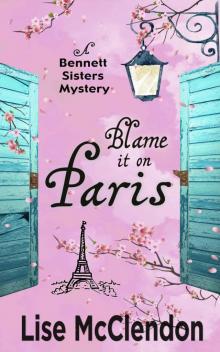 Blame it on Paris (Bennett Sisters Mysteries Book 7)
Blame it on Paris (Bennett Sisters Mysteries Book 7)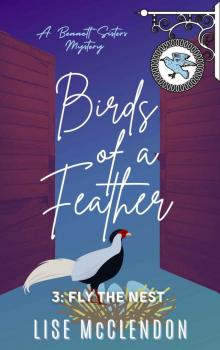 Birds of a Feather: 3: Fly the Nest (Bennett Sisters Mysteries Book 16)
Birds of a Feather: 3: Fly the Nest (Bennett Sisters Mysteries Book 16)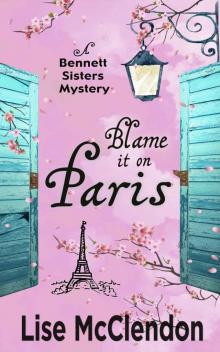 Blame it on Paris
Blame it on Paris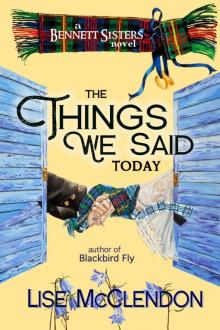 The Things We Said Today
The Things We Said Today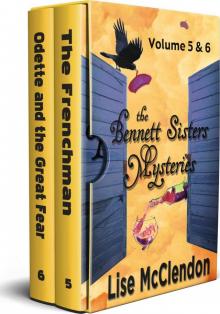 Bennett Sisters Mysteries Volume 5 & 6
Bennett Sisters Mysteries Volume 5 & 6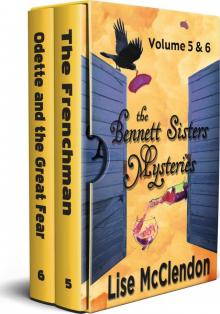 Bennett Sisters Mysteries Box Set 2
Bennett Sisters Mysteries Box Set 2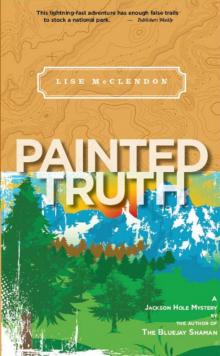 Painted Truth
Painted Truth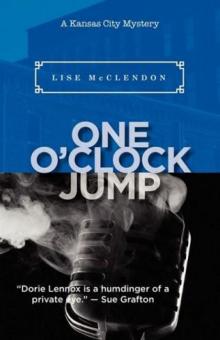 One O'Clock Jump
One O'Clock Jump The Bluejay Shaman (Alix Thorssen Mystery Series)
The Bluejay Shaman (Alix Thorssen Mystery Series) Swing Town Mysteries Dorie Lennox Box Set
Swing Town Mysteries Dorie Lennox Box Set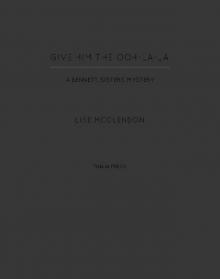 Give Him the Ooh-la-la
Give Him the Ooh-la-la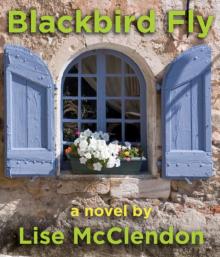 Blackbird Fly
Blackbird Fly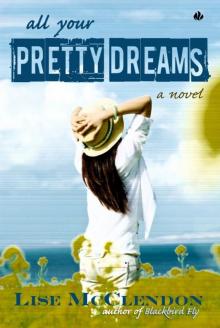 All Your Pretty Dreams
All Your Pretty Dreams Nordic Nights (The Alix Thorssen Mysteries)
Nordic Nights (The Alix Thorssen Mysteries)